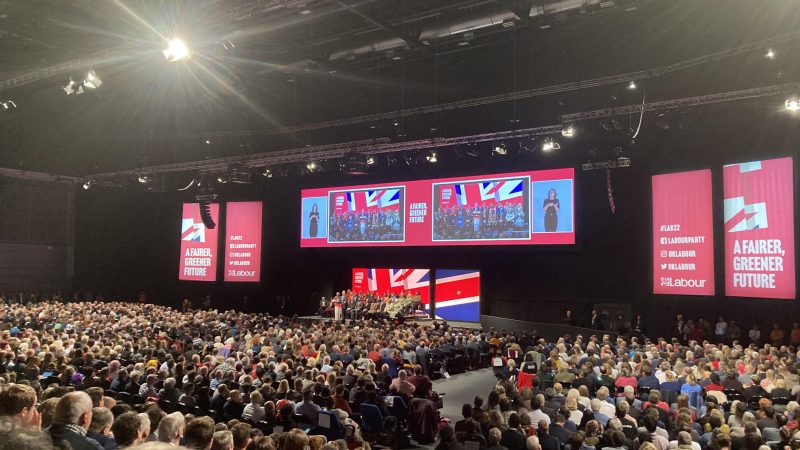
The general election is getting ever closer. There is intense interest and scrutiny in Labour’s emerging policy platform.
So, what goes into the manifesto and how is everything decided?
I spent 10 years on Labour’s National Policy Forum (NPF), the national committee responsible for policymaking. I Co-Chaired the Justice and Home Affairs Policy Commission for over seven years and I attended Clause V meetings in 2015, 2017 and 2019. While each cycle was slightly different, Labour has a formal process outlined in the party rule book. There is usually also an informal process running alongside, including policy reviews and consultations.
The role of the NPF
In terms of the formal process, the NPF is made-up of stakeholders from across the Labour movement including the Shadow Cabinet, party members, trade unions, local government and socialist societies. The NPF is split into policy commissions that focus on broad policy areas. These commissions are co-chaired by someone from the Shadow Cabinet and a member of the party’s national executive committee.
The commissions run policy consultations, consider submissions from across the party and develop broad policy positions. The commissions produce policy documents that are voted on at Labour Party Conference. In relevant years, conference can also vote to reference back parts of the policy documents.
The role of the 2023 Labour Party conference
The 2023 Labour Party Conference voted through Labour’s final policy documents as part of the recent national policy forum process. The documents are over 100 pages, outlining Labour’s policy ambitions should we win the next general election.
The documents inform the manifesto and signal what a Keir Starmer Labour government would look like. The documents were the result of extensive discussions and have been agreed by the Shadow Cabinet, NEC and trade unions. When policy positions are collectively agreed, there is usually a strong sense of collective ownership and collective responsibility from everyone involved. This is important in maintaining party discipline around the general election policy platform.
Policy reviews
Labour is also conducting a range of policy reviews outside the NPF process. This is normal practice. For example, in 2015 John Cruddas ran a policy review for Ed Miliband. High profile reviews already delivered include Lord Jim O’Neill’s Start-up Scale-up Review and Gordon Brown’s Commission on the UK’s Future. The ongoing reviews will be completed in time for a Clause V Manifesto Meeting.
Clause V
The manifesto is drafted by Labour party staff working closely with Keir Starmer, the shadow cabinet and trade unions. The NPF policy documents and agreed positions inform the manifesto, but the policy documents should be viewed as separate to the manifesto and cover a much broader remit. The NPF documents are crucial for internal positioning. A general election manifesto will typically be more outward facing and will speak directly to voters and their most pressing concerns. The NPF documents are also widely shared and now in the public domain, whereas a manifesto will be closely guarded to ensure the content is confidential until it is unveiled to the public. There are many reasons to keep the manifesto confidential, including that it stops the Tories from stealing our best ideas!
Once a general election is called, a date will be set for the Clause V meeting. This is the meeting, chaired by the leader of the Labour Party, when the NEC, TULO and Shadow Cabinet agree the manifesto. Attendees hand over their electronic devices and are given numbered copies of the manifesto to discuss and agree.
The meeting could play out in different ways. In a usual parliamentary cycle, delegates attending the Clause V meeting tend to rubber stamp a pre-agreed document, which is effectively ready to be published. In snap election years, there was less time to agree policy positions so there was more debating, with delegates voting on multiple amendments to the document.
As we get closer to the general election, I will write more about how a Clause V meeting is run and the policies likely to be agreed. For now, you can follow LabourList’s excellent rundown of Labour’s policy announcements so far…




More from LabourList
‘Council Tax shouldn’t punish those who have the least or those we owe the most’
Two-thirds of Labour members say government has made too many policy U-turns, poll reveals
‘Two states, one future: five steps on the path to peace for Israelis and Palestinians’